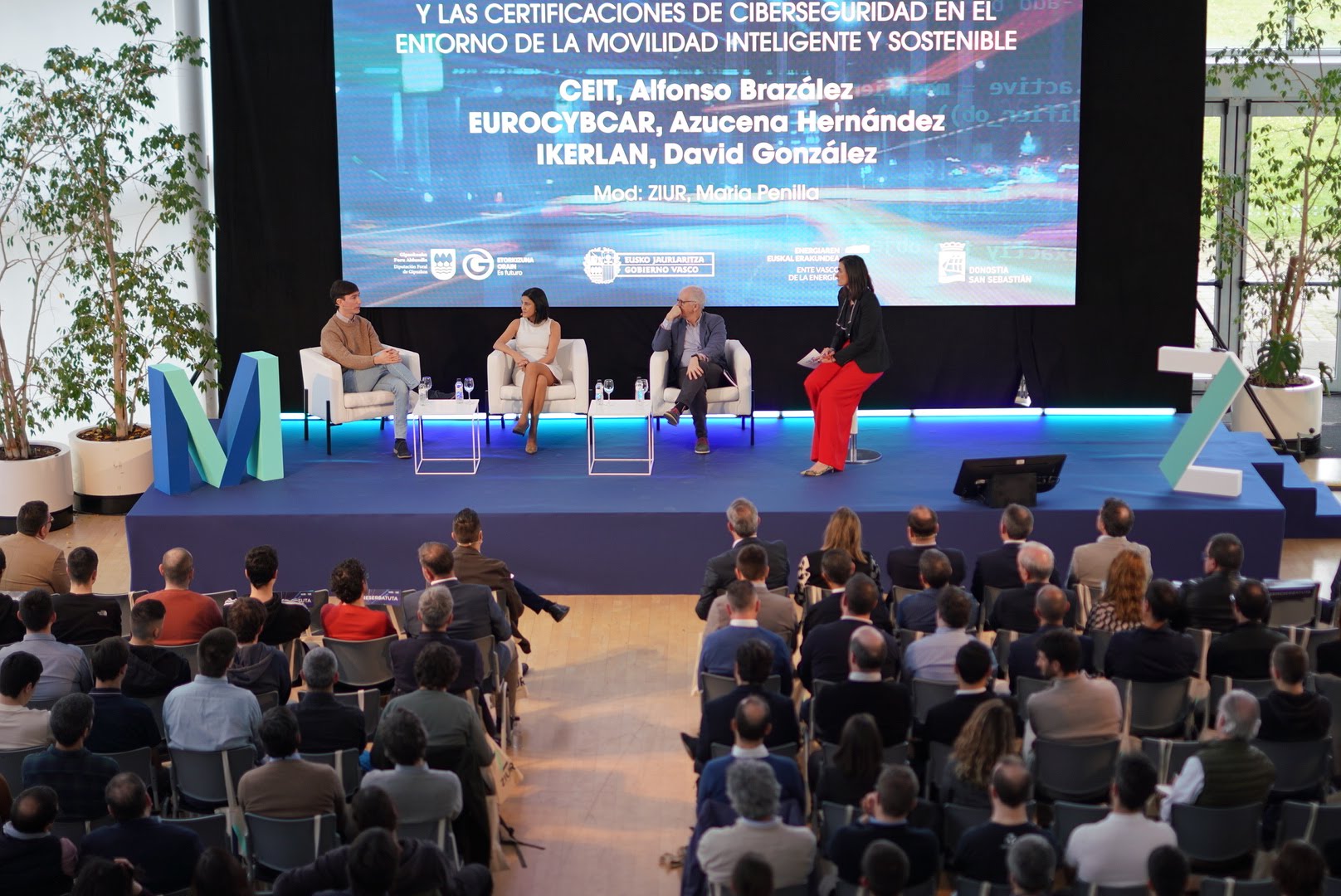Back The impact of cybersecurity on smart and sustainable mobility brings together more than 150 companies

The impact of cybersecurity on smart and sustainable mobility brings together more than 150 companies
The MUBIL and ZIUR foundations have organized a business meeting to bring the mobility industry closer to the new cybersecurity regulatory requirements that affect and will affect their activity. The workshop was attended by experts, technology centers and companies in the sector who shared their experiences when it came to certifying both their production processes and the components and vehicles they manufacture as cyber-insurance.
The conference has brought together a large group of organizations that carry out their activity in the field of mobility and that are seeing how the new cybersecurity regulations directly affect their processes, products and services. It is a new reality and the challenge of promoting smart and sustainable mobility means incorporating the cybersecurity perspective in all the processes linked to said activity. This has been revealed from various perspectives by all the people who have participated in the meeting.
At the opening of the event, the general deputy of Gipuzkoa, Markel Olano, stressed the importance of cybersecurity as a "transversal factor of competitiveness. As the digitization process progresses, it has increasing weight, also in sectors such as mobility, in transition towards a connected and autonomous vehicle model. New advances also mean new challenges, and this forces us to incorporate the vision of cybersecurity. It is also necessary to be excellent in the regulatory or normative aspect, in intangibles and processes, sharing knowledge and good practices with initiatives like this one”.
Along the same lines, Koldo Peciña and Ane Insausti, managers of ZIUR and MUBIL, have underlined "the real impact that these new demands are having on our industrial fabric given the strong presence of companies that work in the automotive, transport and mobility and the demanding future challenges that this sector must face”.
David Jiménez, director of the Mobility Cybersecurity Department at Zerolynx and Osane Consulting, explained that "cybersecurity is a fundamental requirement so that technological progress does not negatively affect road safety." For this reason, the expert pointed out, it is clear that manufacturers must apply cybersecurity by default and by design”.
Experiences
Regarding regulations and certifications, David González, from Ikerlan; Azucena Hernández, from Eurocybcar; Alfonso Brazález, from Ceit; and Maria Penilla, from Ziur. His experience advises approaching the connected vehicle with a global vision, contemplating all the agents that participate in the chain: from the components to the vehicle itself, seen as a system, and taking into account the infrastructure and communications that support its connection. In his opinion, companies need very long deadlines to adapt their products to cybersecurity requirements, but the existing context in the Basque Country represents an opportunity to strengthen the competitiveness of the mobility sector.
Another moment of the day has analyzed how the machine tool sector is coping with these new requirements related to mobility. To this end, a round table brought together Txemi Viedma, representative of the Construction division of Corporación Mondragón, Eneko Anasagasti, from Goizper; Iñaki Lamikiz, from Fagor Arrasate; and Ernesto Lauzirika, from Laga Consulting. In his opinion, it is necessary for companies in the sector to see the value provided by the new regulations that are emerging and will emerge in the coming months, and that, as a consequence, they invest in it and take advantage of these requirements to improve the maturity of cybersecurity. of its internal processes.
From the perspective of the companies that are part of the automotive value chain, it is considered that "we must be aware that when an OEM is subject to the obligation of a cybersecurity certification, said regulation is inevitably transmitted to the throughout its supply chain. This has been expressed by Javier Benito, from Batz; Rubén Lauzurika, from Laga Consulting and Jorge Palomar, from GKN. In his opinion, it is key to be prepared for "this wave that hits us" and undertake management awareness work, prior to any certification, in order to dedicate the necessary internal and external resources and face the process successfully.
The meeting ended with the interventions of Zigor Arosa, from CAF, and Ixone Busturia, from NUUK Mobility Solutions, who explained their respective experiences in the cybersecurity approval and certification processes in the manufacture of their respective vehicles and mobility solutions.
Arosa has focused its intervention on the railway business line, stressing the need to "evolve its processes and increase human and technical capacities to be able to incorporate cybersecurity and risk management throughout the life cycle of its products, as the only way to complete this challenge successfully”.
Busturia, for its part, highlighted the importance of testing and certifying its vehicles, and the milestone for NUUK Mobility Solutions to have received the first AENOR certificate for "Cybersecurity in Vehicles". In his opinion, "we are at the beginning of the regulatory process since, given new forms of use, new types of vehicle, new technologies, and increasing levels of connection, the regulations must respond to the new realities."